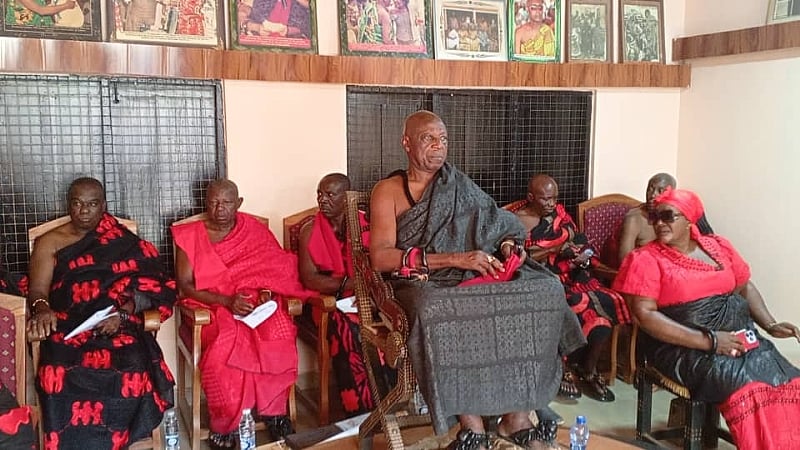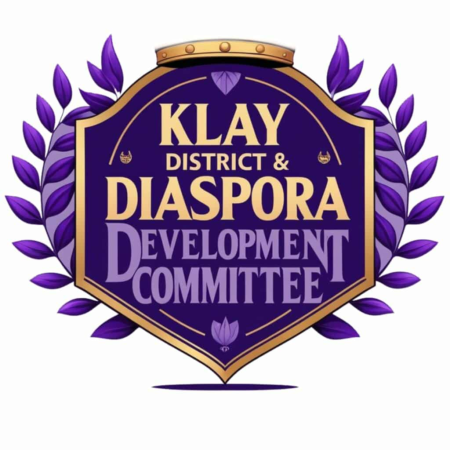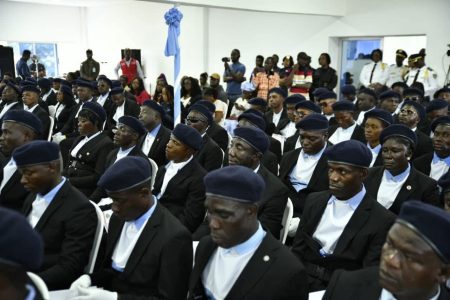The Agona Nyakrom Traditional Council has emphatically declared Opanin Kwesi Gyan, also known as Frank Asiedu, an imposter, asserting that he does not hold and has never held the chieftaincy of Agona Abodom. This public denouncement, delivered during a press conference, aims to clarify the ongoing chieftaincy dispute and warn the public against recognizing Gyan as a traditional leader. The Council reiterated that any engagement with him in that capacity would be at the individual’s peril. This declaration underscores the Council’s commitment to upholding customary processes and resolving the dispute through established traditional and legal channels.
The Council’s statement detailed the sequence of events leading to the current impasse. Initially, the Agona Abodom Divisional Council, under the regency of Nana Owirow XIV, presented Gyan as the chief-elect. The Agona Nyakrom Traditional Council granted its initial approval and a customary 14-day installation notice was issued. However, a formal petition challenging the legitimacy of both the kingmakers and Gyan’s nomination was filed with the Judicial Committee, prompting the Council to suspend all installation processes pending adjudication. Despite this suspension, the Council was subsequently informed of the installation of a different chief, Nana Osam Dadzie Obrempong XI, in direct contravention of traditional procedures and without the Council’s approval. This act of defiance further complicated the chieftaincy dispute and highlighted the growing tension within the community.
The unauthorized installation of Nana Obrempong XI was compounded by his subsequent declaration of Agona Abodom’s secession from the Agona Nyakrom Traditional Council. This declaration, viewed by the Council as a serious breach of custom and tradition, has deepened the division between the Asona Royal Family, who claim to be the rightful kingmakers, and the Agona Nyakrom Traditional Council. This act of defiance has further complicated the situation and underscores the pressing need for a resolution to the chieftaincy dispute. The Traditional Council has expressed its commitment to resolving the issue through appropriate legal and traditional avenues.
The Council’s press conference served as a platform to address the escalating tensions and clarify its position. The statement emphasized that, at present, there is no legitimately installed chief of Agona Abodom. The Council reiterated that it will officially communicate the resolution of the chieftaincy dispute and the installation of a legitimate chief through the same public channels once the Judicial Committee delivers its verdict. This commitment to transparency aims to ensure public awareness and prevent further confusion or misinformation. The Council also took the opportunity to cancel the planned 2025 Akwambo Festival of Agona Abodom, scheduled for early August, citing the unresolved chieftaincy dispute as the reason.
The Agona Nyakrom Traditional Council’s strong stance against Opanin Kwesi Gyan, coupled with its cancellation of the upcoming festival, highlights the seriousness of the situation and the Council’s resolve to maintain order and uphold tradition. TheCouncil’s warning to government agencies, institutions, and the general public not to engage with anyone claiming to be the chief of Agona Abodom underscores their commitment to a lawful and traditionally appropriate resolution of the dispute. This warning serves as a clear directive and aims to prevent further complications arising from interactions with individuals claiming unauthorized authority.
The ongoing chieftaincy dispute in Agona Abodom reveals a complex interplay of traditional customs, legal procedures, and internal power struggles. The Traditional Council is seeking to assert its authority and maintain the integrity of customary practices in the face of challenges to its authority. The Council’s actions and pronouncements indicate its determination to resolve the dispute through established channels and ensure the eventual installation of a legitimate chief in accordance with tradition. The ultimate resolution of this dispute will have significant implications for the governance and future of Agona Abodom.














